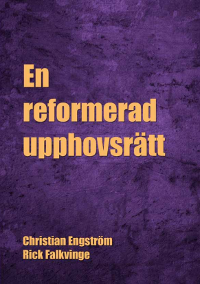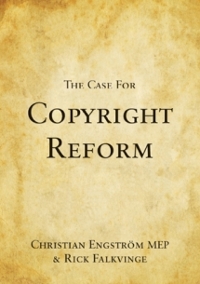
Trade Commissioner Karel De Gucht explaining that US authorities will not enforce European geograpical indications according to ACTA
Enforcement of Geographical Indications by US customs officials is not part of the ACTA agreement on intellectual property rights enforcement. This was made clear by the EU’s trade commissioner Karel De Gucht when he appeared before the International Trade Committee INTA in the European Parliament yesterday.
In Europe, you are only allowed to market a sparkling wine as ”champagne” if it actually comes from the Champagne district in France. This is because the word ”champagne” is a Geographical Indication, or GI. Other examples are Parma ham, which may only be called that if it is produced in Parma, and Feta cheese, which may only be called that if it is produced in Greece. Geographical Indications are similar to trademarks (in particular, certification marks), but they constitute an intellectual property right of their own.
The protection of GIs has been a controversial subject in the ACTA negotiations, since some countries involved in the negotiations, in particular the US, do not protect geographical indications. European producers of Champagne, Parma ham etc. would have wanted the ACTA agreement to cover geographical indications as well, in addition to regular trademarks.
The US has been opposed to this all along, but there have still been rumors and statements suggesting that geographical indications would be part of the ACTA agreement anyway.
To bring some clarity on the issue I took the opportunity to ask the Commissioner when he appeared before the committee in the European Parliament yesterday. You can watch the recording from the committee meeting here (the questioning of the Commissioner begins at 17:14, and my question starts at time code 18:13:30).
My question was:
Q: I have one question on Geographical Indications in ACTA. You said that there has been an absolute refusal by the US to add geographical indications, and I can understand that. Indeed, this is borne out in the Agreement itself, if we look at paragraph 1.3.2, where it says:
This Agreement does not create any obligation on a Party to apply measures where a right in intellectual property is not protected under the laws and regulations of that Party.
Of course, as we all know, geographical indications are not protected in the US. So that seems clear, geographical indications seem to be out of it.
But then you said that there has been a ”good result” [relating to GIs], and there have been other reports suggesting that geographical indications where in fact in, although they appear not to be. Could you please clarify?
Commissioner Karel De Gucht: ACTA is not a treaty on changing substantive law, so ACTA does not change the substantive law on geographical indications in either contractual Party. ACTA cannot change the law on geographical indications in the United States.
What ACTA aims at is the enforcement of intellectual property rights, and there you have the equal treatment of all intellectual property rights, GIs included. This was clearly refused in the beginning, but now it’s part of it.
This also means that the border enforcement can take place only in those countries where GIs are recognized. That is what is in the ACTA agreement, and that is what ACTA is about: the enforcement of substantive law. When there is no substantive law, there can be no border enforcement.
In fact, in practice this concerns especially Singapore, where you have the GIs protected, where you have a national register, and where normally you can now have enforcement at the border. Probably you will have to distinguish between end users and products in transit. That is what it is about.
What we have been trying to do as the European Commission is to gain recognition for GIs, but that is not an easy task, because a lot of countries do not recognize GIs, and that cannot happen through ACTA.
So, to summarize: As the ACTA agreement now stands, there is nothing in it that obliges the US to assist European customs authorities in the enforcement of geographical indications. Even if US customs officials come across containers of Californian Champagne, or Parma ham made in Texas, and they can see that the containers are destined for Europe, they are under no obligation to even notify their European counterparts, or react in any other way.
The ACTA agreement in its current form includes enforcement of trademark rights by all contracting parties, but it does not offer the same level of protection to the European geographical indications. I am not quite sure why the Commission, which is supposed to be looking after European interests when negotiating, has agreed to this US demand.
I am, however, very grateful to the Commissioner for this clarification.
…………
Tags: piratpartiet, eu, politik, informationspolitik
 Christian Engström, former Member of the European Parliament 2009-2014 for Piratpartiet, Sweden
Christian Engström, former Member of the European Parliament 2009-2014 for Piratpartiet, Sweden




[…] I går lyckades Pirate MEP Christian Engström – som ju är en hjälpsam människa – red… […]
Pingback av Henrik Alexandersson: ACTA: GI-kortet synas | Piratkopiering — 26 oktober 2010 @ 15:52
Maybe to have the customs authorities in Singapore confiscate incoming shipments of Californian ”champagne” and thus deal a severe blow to U.S. exports? 🙂
Seriously, I also find Karel De Gucht’s explanation informative. I understand the expression ”substantive law” to include whatever legal protection there is for works of literature, inventions, trademarks and similar, but to exclude the add-ons required to actually enforce said protection (customs procedures, confiscation, private or criminal procedure, damages, fines or jail punishment). It’s interesting that a ”trade agreement” can require the parties to introduce criminal sanctions for infringing whatever exclusive ”rights” may be recognized by either party, but not to introduce new (or harmonize the substance of) such ”rights”.
Which brings me to the issue of what changes may be needed to make Swedish trademark law conform to ACTA. Since Minister of Justice Beatrice Ask admitted in the Swedish Parliament that allowing merely the trademark owner to act against cases of infringement will no longer be sufficient, I understand we may have to give a public prosecutor the authority to take action independently of the wishes of the trademark owner.
When I register a trademark in Sweden, it’s my understanding that I will get some help from the state in prohibiting others from using it to my commercial disadvantage, provided I let the authorities know when I’m being disadvantaged. If I don’t tell them, how should they know which uses of my trademark are authorized (or simply ignored) by me, and which uses are not?
Every trademark isn’t as well-known as Rolex or Sony, but there are hundreds of thousands of trademarks registered in Sweden alone, many of which are merely words, while others contain images. Are customs authorities supposed to perform a full trademark search for every suspect item found in an inspected shipment, or will they merely check the items against a very short list of globally known trademarks, including for instance Rolex and Sony, but not the phrases ”there’s an app for that” or ”verklighetens folk”? If there is a list, how do you get your trademark on it – or more importanly, how do you get it off once you realize you have made your customers flee in all directions?
I don’t think ”having the state help you enforce your monopoly” and ”having the state enforce your monopoly for you whether you want it or not” amounts to exactly the same right. Still, ACTA doesn’t seem to treat this difference as one of ”substantive law”, but as one of ”enforcement” only.
I’m afraid we’ll be looking forward to some pretty arbitrary application of the law against the usual suspects and innocent bystanders alike.
Kommentar av Anders Andersson — 26 oktober 2010 @ 19:02
[…] full post on Christian Engström, Pirate MEP This entry was posted in Uncategorized and tagged ACTA, Indications. Bookmark the permalink. […]
Pingback av No Geographical Indications in ACTA | Piratkopiering — 27 oktober 2010 @ 4:39
This is just a sneaking suspicion:
1. GIs can also concern pharma products like cosmetics and medicines. If the origin herb of the active component grows e. g. in a developing country (dc). The dc can decide about the granting of licence of the herbs and of the synthetical production.
2. If the USA does the GI into the ACTA it will concern their amendments. Then it might be a big thing and the ACTA has go through all procedures alternating existing law. When the ACTA is just a small addendum then only the ones it concerns have to agree. => the ”small” way will be the cheaper way to convince them ^^
Kommentar av Idee — 29 oktober 2010 @ 18:55
Didn’t Karel de Gucht previously say to the parliament that without the GI there would be no point for EU to have the ACTA agreement?
Kommentar av Kallisti — 2 november 2010 @ 22:49
I think he did. Which isn’t surprising given that ACTA has long since ceased to be anything other than a bought-and-paid-for attempt at internet ”control”.
Pointless and doomed to futility, but it will certainly cause a great deal of harm as the new legislation will lend itself to any number of infringements upon civic rights without due cause or process.
Kommentar av Scary Devil Monastery — 8 november 2010 @ 11:01